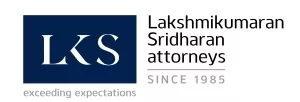- within International Law topic(s)
- with Finance and Tax Executives
- in India
- with readers working within the Accounting & Consultancy industries
Introduction:
Rules of Origin are integral to Free Trade Agreements ('FTAs') as far as trade in goods is concerned. They are crucial to ensure that the benefits of the FTA are extended only to the goods originating in the territories of the parties to the FTA. To avail these benefits, the importer must establish compliance with the Rules of Origin under the relevant FTA by submitting a valid Certificate of Origin ('CoO') issued and endorsed by the exporting country's authorized government body.
While classification of goods under the correct tariff heading is imperative for determining eligibility under specific FTA concession notifications, the Hon'ble Supreme Court recently in the case of LG Electronics India1 has held that origin compliance in case of FTAs takes precedence and is of supreme importance. Even if classification is disputed by the customs authorities, FTA benefits cannot be denied if the goods meet the requisite origin criteria and the same is also supported by a valid CoO submitted by the importer, provided that the competing tariff heading/entry is also covered for the purposes of FTA benefit.
Thus, the Hon'ble Supreme Court's ruling has cleared the path for importers intending to avail the benefit of FTAs, which are often challenged by the customs authorities on the ground of correctness of the classification adopted.
Dispute as decided by CESTAT, Delhi2:
The issue before the CESTAT, Delhi primarily pertained to the classification of 'G Smart Watches' imported by LG Electronics from Republic of Korea and the benefit claimed under India-Korea FTA. The importer herein had classified the said watches under Customs Tariff Item ('CTI') 9102 19 00 (wrist watches) and claimed the benefit of 'Nil' Basic Customs Duty ('BCD') under Sl. No. 955 of Notification No. 152/2009-Customs dated 31 December 2009 ('Exemption Notification'). The imports were supported by a valid CoO, wherein the origin of the watches was declared as Korea.
The customs authorities disputed the classification of the imported watches and sought to reclassify the same under CTI 8517 62 90 (other apparatus for transmission or reception of voice, images or other data) and not CTI 9102 19 00 which covers watches and clocks having limited purpose of time computation.
The CESTAT, Delhi upheld the classification of the smart watches under CTI 8517 62 90 considering that the same has advanced technological features such as data reception, transmissions, bluetooth, etc. which is akin to computer device. The primary function of these smart watches is not to display time. With respect to the FTA benefit claimed under the Exemption Notification, the CESTAT held that since the importer had claimed incorrect classification, the question of eligibility to exemption becomes inapplicable.
Challenge to the decision of CESTAT, Delhi:
The importer challenged the decision passed by CESTAT, Delhi before the Hon'ble Supreme Court contending that the smart watches are in fact wrist watches with additional features. The importer contended that even if the classification as upheld by CESTAT, Delhi under CTI 8517 62 90 is accepted, the FTA benefit should still be available considering that the said tariff item was covered under it. The benefit becomes eligible to the importer once the conditions of the exemption notification are fulfilled and duly satisfied by the importer. In the instant case, there was no dispute about the genuineness of the CoO, the origin of the goods and hence, the imported goods fulfil the origin criteria.
The Department countered the importer's argument and submitted that the FTA benefit cannot to be extended since the classification of the goods mentioned in the CoO was CTI 9102 19 90, which is incorrect.
Final verdict by the Hon'ble Supreme Court:
While deciding the question of law, the Hon'ble Supreme Court placed significant emphasis on the CoO submitted by the importer, wherein the exporter explicitly declared that the goods were indeed produced in Republic of Korea and complied with the origin criteria as specified in the India-Korea FTA.
The Hon'ble Supreme Court categorically held that the benefit of FTA concession ought to have been extended to the importer, regardless of the classification since both the competing entries fall within the scope of the Exemption Notification. Therefore, once it is established that the origin criteria have been satisfied, exemption ought not to have been denied owing to the dispute on classification.
Conclusion:
The primary objective of FTAs is to grant tariff concession/ exemption to specified goods, when imported from a specific country. To avail such benefit, the importer must establish that the imported goods are covered under the concerned FTA and originate from the specified country in accordance with the Rules of Origin.
Keeping this core objective of FTAs in mind, the judgement passed by the Hon'ble Supreme Court takes a pragmatic view and effectively settles the long-standing challenges faced by the importers while claiming the benefit of FTAs, which are often hindered on account of parallel classification disputes raised by the customs authorities.
The judgment of the Hon'ble Supreme Court is a welcome relief for the industry and furthers the Government's intention to promote trade with the help of the FTAs.
Footnotes
1. LG Electronics India Limited v. Commissioner of Customs, 2025-TIOL-68-SC-CUS.
2. LG Electronics India Limited v. Commissioner of Customs, 2023-TIOL-1069-CESTAT-DEL.
The content of this article is intended to provide a general guide to the subject matter. Specialist advice should be sought about your specific circumstances.



